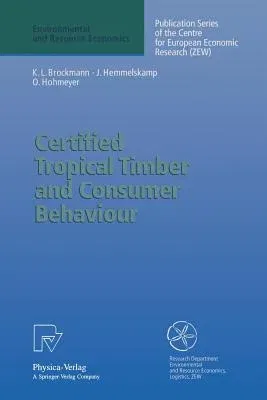Karl L Brockmann
(Author)Certified Tropical Timber and Consumer Behaviour: The Impact of a Certification Scheme for Tropical Timber from Sustainable Forest Management on GermaPaperback - 1996, 10 July 1996

Qty
1
Turbo
Ships in 2 - 3 days
In Stock
Free Delivery
Cash on Delivery
15 Days
Free Returns
Secure Checkout
Part of Series
Environmental and Resource Economics
Print Length
178 pages
Language
English
Publisher
Physica-Verlag
Date Published
10 Jul 1996
ISBN-10
3790809551
ISBN-13
9783790809558
Description
Product Details
Book Edition:
1996
Book Format:
Paperback
Country of Origin:
DE
Date Published:
10 July 1996
Dimensions:
23.39 x
15.6 x
1.07 cm
Genre:
Germany
ISBN-10:
3790809551
ISBN-13:
9783790809558
Language:
English
Location:
Heidelberg
Pages:
178
Publisher:
Weight:
281.23 gm

